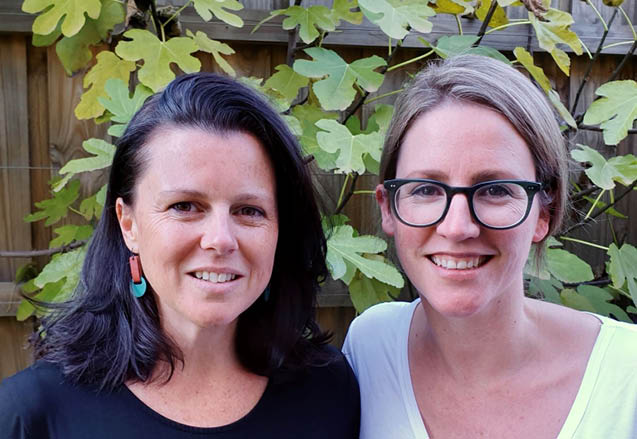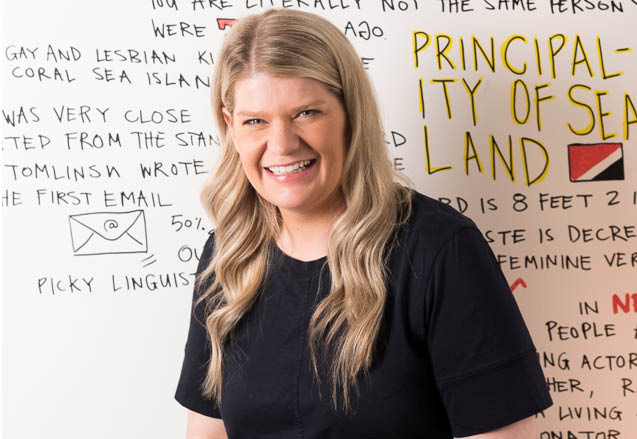The part-time CEO. At first glance, it seems like a contradiction. How exactly is a boss supposed to “lean out”?
But plenty of successful businesses operate this way – and the benefits to women, especially those juggling families, are obvious.
At a time when just five per cent of ASX200 companies are run by women, and men continue to out-earn women, the potential advantages – not just for women, but society in general – are enormous.
Below, three part-time CEOs tell PRIMER how they get it done.
“We job-share our CEO role”
Elizabeth McKinnon is co-CEO with Nicola Rivers at Environmental Justice Australia, a public interest legal organisation with a staff of roughly twenty, who are mostly lawyers.

When and why did you start?
“Nicola and I worked together in the past – we’re both environmental lawyers – so we were already close friends. The job was advertised as a full-time role, but we made the decision to apply for it together last year.
We did that because we both had young families – my kids are very little – 1 and 4 and Nicola’s are five and 7. We’re not in the position to work full time at the moment but we both felt that we were ready to take the next step in our careers and fulfil the CEO role. Between us, we have 32 years of experience in environmental law and in the end, it was quite hard for any other candidate to beat that.”
Any hurdles?
“The main thing was convincing the board and helping them understand what our operating model would look like. But after the first meeting the board and the staff were really excited. And I guess we didn’t really think it was fair that those roles were not available to us just because we wanted to work part time and be with our families some of the week.”
We didn’t think it was fair that those roles were not available to us just because we wanted to be with our families
How do you make it work?
“We split the week in half – we do three days each and then have one overlap day, so basically I work Monday to Wednesday and Nicola works Wednesday to Friday. Wednesday is the day we have all of our meetings together and we spend time together if we need to nut out problems and make particular joint decisions.
We say to everyone – treat us like one person. We have one email account so if you speak to me on one day and have a conversation with Nicola on another day about the same topic, you can assume that she knows everything you’ve already told me.”
Pros and cons of sharing the top position?
“Of course, there are challenges, like in any leadership role there are challenges, and there should be. We are still fine-tuning our handover day. [But] all of the benefits outweigh the challenges so significantly.
We are really lucky in that it’s not an arranged marriage – Nicola and I love each other and we love what we do, so there is a tremendous amount of trust there between us, which means that even if there are days that bleed into our ‘time off’ we are able to roll with it.”
“No one in our office works Fridays”
Michelle Le Poidevin is the part-time CEO of innovation consultancy firm, Inventium with a staff of ten. She works four days a week.

When and why did you start working as a part-time CEO?
“In July 2020 Inventium started a four-day week trial, where we worked 100 percent, for 100 percent salary in 80 percent of the time. So, I work Monday to Thursday. We implemented the practice in November 2020. Off the back of COVID I recognised that our team had more going on outside of work than ever and that more flexibility was required.
I wanted them to be able to feel like they were kicking goals at work and in life. I also recognised that there was so much time in the working week that was wasted. This is not about working longer over four days, but rather, using the time in the four days more productively.”
This is not about working longer over four days, but rather, using the time in the four days more productively
How do you make it work?
“Having Fridays off has helped me and the team to be far more productive and more respectful of each other’s time. This is particularly the case for meetings, which are now far fewer, far shorter and more structured as a result.”
Pros and cons?
“There are no real disadvantages. Friday is now a day that I can use to think, read, learn new skills or have the space to catch up if necessary. This has been invaluable.
This practice is a true demonstration of trust in your employees. You are not managing them by the clock, but rather their output. You are also giving them the permission to truly balance work and home life. We call our 4 Day Week ‘The Gift of the Fifth’. This is reflective of the fact that it is a gift of time that we want our team to give to their families, their friends, their community or themselves. This has only improved the quality of relationships all round.”
“We each work two full days together a week”
Alex McCabe job-shares the role of founder and CEO of homewares and apparel brand, Kip&Co with her best friends, Kate Heppell and Hayley Pannekoecke, (who are also sisters).

When and why did you start?
“When we started Kip&Co in 2012, it was something we tried to fit around our busy lives. Kate and Hays already had kids and I had a full-time job.
I quit my job after about five years, and we’ve now got eight kids between us, so life has changed a lot but the way we run the business hasn’t. We’ve made the choice to prioritise our family and friends and Kip&Co needs to work around that.
There’s no such thing as a ‘standard week’ for us. Having worked in corporate [roles], where 50-hour weeks are standard, I’m grateful that we’re not juggling those kind of hours.
We’ve made the choice to prioritise our family and friends and Kip&Co needs to work around that
How do you make it work?
“On Mondays the three of us meet together with each team member and have a WIP. That pretty much takes up the whole day as the meeting conversations can end up expanding into bigger strategy questions or raise an issue that we try to nut out on the spot.
On Thursdays Kate and Hays and I meet and work collaboratively on design – that’s our exclusive focus that day and it helps us to carve the time out to be creative. The rest of the week, we really work to our own schedules.
There are a few key things that allow us to still work in a flexible way. First is hiring an incredible team, who we empower to make decisions autonomously and who are all excellent at their jobs.
Second thing is WhatsApp! We communicate with each other a lot on WhatsApp but we do so with brevity and act decisively, no fluffing around! I think communicating frequently, honestly and transparently is key. We share a lot of responsibilities, but we have individual responsibilities, and having that separation is important.”
We communicate with each other a lot but we do so with brevity and act decisively, no fluffing around!
Pros and cons?
“You shoulder the stresses of small business together, but you also have someone to celebrate with who truly understands the blood sweat and tears that it took to get you there.
The cons are few and far between – we sometimes disagree of course, but we are also friends outside of Kip&Co and we really just love each other and want to have fun – that’s our priority.”












No Comments